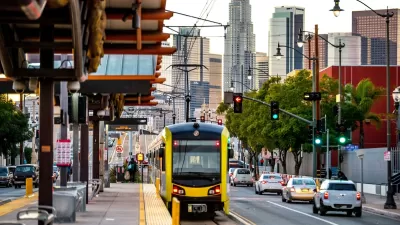The first public hearing on how to shore up the MTA's finances was held on Monday. Congestion pricing was widely mentioned as part of the solution, but more will be necessary to maintain and expand the nation's largest transit system.
The panel headed by former MTA chief Richard Ravitch held its first public hearing Monday at NYU's Kimmel Center. A variety of proposals surfaced, including congestion pricing, to help the MTA navigate its current funding crisis.
Streetsblog was there to observe the afternoon session and give a brief rundown of the themes that surfaced repeatedly:
"Responsibility for adequately funding the MTA should fall on those who benefit from its services. This encompasses a fairly broad swath of people, including straphangers, the real estate industry, and car commuters (who get less traffic on the street when more people use transit). Many of these 'stakeholders' already contribute something to the MTA in the form of fares or dedicated taxes, and could be asked to pay higher rates going forward. Several people testified that some form of road pricing or bridge tolling would be an additional stream of revenue consistent with this philosophy."
"The MTA needs more consistent and reliable revenue streams. Congestion pricing fits the bill in this regard, too. The need for predictable revenue also led speakers to suggest more broad-based taxes, unlike the targeted taxes mentioned above. (Taxes collected from the real estate industry have proven especially fickle recently.) Kevin Corbett of the Empire State Transportation Alliance recommended both road pricing and a payroll tax, saying that 'if you have multiple parties sharing in the pain, it's easier to do a deal.' He added, 'Looking at the enormity of the task, we suspect it will be a combination of the various taxes [and] fees.'"
FULL STORY: Ravitch Commission Faces Difficult Task of Shoring Up MTA’s Future

Alabama: Trump Terminates Settlements for Black Communities Harmed By Raw Sewage
Trump deemed the landmark civil rights agreement “illegal DEI and environmental justice policy.”

Planetizen Federal Action Tracker
A weekly monitor of how Trump’s orders and actions are impacting planners and planning in America.

The 120 Year Old Tiny Home Villages That Sheltered San Francisco’s Earthquake Refugees
More than a century ago, San Francisco mobilized to house thousands of residents displaced by the 1906 earthquake. Could their strategy offer a model for the present?

Rural Population Grew Again in 2024
Americans continued to move to smaller towns and cities, resulting in a fourth straight year of growth in rural areas.

Safe Streets Grants: What to Know
This year’s round of Safe Streets for All grant criteria come with some changes.

Rural Missouri Transit Service Could Lose State Funding
OATS Transit offers low-cost rides to primarily elderly rural residents with little or no access to other transportation options.
Urban Design for Planners 1: Software Tools
This six-course series explores essential urban design concepts using open source software and equips planners with the tools they need to participate fully in the urban design process.
Planning for Universal Design
Learn the tools for implementing Universal Design in planning regulations.
Clanton & Associates, Inc.
Jessamine County Fiscal Court
Institute for Housing and Urban Development Studies (IHS)
City of Grandview
Harvard GSD Executive Education
Toledo-Lucas County Plan Commissions
Salt Lake City
NYU Wagner Graduate School of Public Service





























